Losing Weight After a Tummy Tuck: Will I Look Thinner After the Surgery?
Body Plastic Surgery
An abdominoplasty, commonly known as a tummy tuck, primarily aims to remove excess skin and tighten the abdominal area rather than directly reduce weight. However, patients may experience a modest weight loss of 5-10 pounds due to the removal of redundant skin and adipose tissue. It's important to note that the best results come from maintaining a healthy lifestyle post-surgery.
What Is a Tummy Tuck?
A tummy tuck, or abdominoplasty, is a surgical procedure designed to reshape and firm the abdominal region. It involves the removal of excess skin and fat from the middle and lower abdomen to tighten the muscle and fascia of the abdominal wall. This procedure particularly benefits individuals with loose or sagging tissues after pregnancy or significant weight loss.
A tummy tuck is more than just a cosmetic surgery; it's a transformative procedure that can significantly improve the abdomen's appearance. By removing excess skin and fat and restoring weakened or separated muscles, a tummy tuck creates a smoother and firmer abdominal profile, often enhancing the patient's body image and confidence.

Weight Loss After a Tummy Tuck: Setting Realistic Expectations
Embarking on the weight loss journey after a tummy tuck requires a blend of hope and realism. Post-surgery transformation can be profound, yet it's vital to understand the distinction between immediate weight reduction and long-term body contouring benefits. This understanding helps in setting achievable goals and working towards maintaining those results.
Immediate Weight Loss vs. Long-Term Results
Immediate weight reduction
Right after a tummy tuck, patients often experience a notable decrease in their weight. This is primarily due to the removal of excess skin and fat. It's important to note that this initial loss doesn't equate to a drastic drop in pounds for everyone; the scale might reflect a moderate change depending on the amount of tissue removed.
Long-term body contouring benefits
The true essence of a tummy tuck lies in its ability to refine the body's contours. Abdominoplasty isn't just about shedding pounds; it's about sculpting the body in a way that weight loss alone might not achieve. This sculpting can significantly enhance one's physique and, therefore, should be the primary expectation from the procedure.
Factors Influencing Weight Loss Success
- Lifestyle and diet: Post-surgery, embracing a healthy lifestyle is crucial. A balanced diet, rich in nutrients, supports healing and maintains the long-term weight loss results. Making conscious food choices can prevent the accumulation of new fat deposits, ensuring the longevity of the tummy tuck benefits.
- Exercise habits: Regular physical activity is another pillar in sustaining weight loss. Exercise helps keep the pounds off and ton the body further. As advised by the surgeon, starting with gentle activities and gradually increasing intensity can make a significant difference.
- Post-surgery care adherence: Following the surgeon's instructions for post-surgery care is paramount. This includes caring for the surgical site, wearing compression garments, and attending follow-up appointments. Proper care can expedite healing, reduce the risk of complications, and enhance the overall results.
Average Weight Loss After Tummy Tuck
Procedure Type | Average Weight Loss |
Mini Tummy Tuck | 3-5 pounds |
Full Tummy Tuck | 5-10 pounds |
Extended Tummy Tuck | 7-12 pounds |
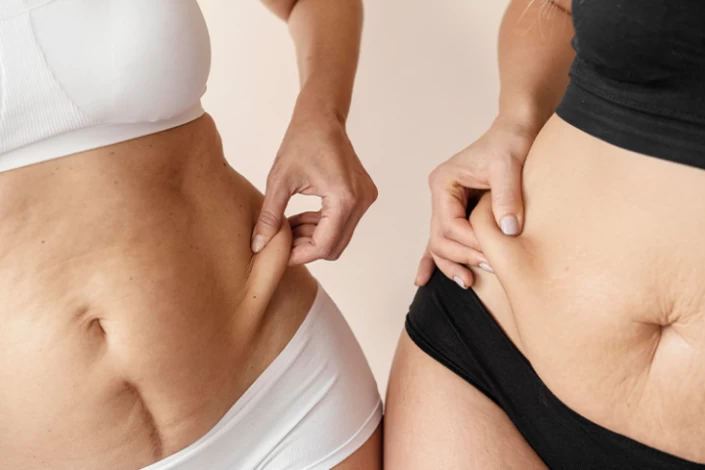
Long-Term Weight Loss and Tummy Tuck Benefits
Achieving long-term weight loss and reaping the full spectrum of tummy tuck benefits requires a holistic approach. Beyond the initial recovery and visible changes, sustaining these improvements involves a commitment to a healthier lifestyle. The impact of a tummy tuck extends far beyond the physical appearance, influencing various aspects of a person's life positively.
The Role of Post-Surgery Care in Weight Loss Maintenance
Tummy tuck aftercare is pivotal for healing and maintaining weight loss and optimizing the benefits of body contouring. Proper care can significantly influence the long-term outcome of the surgery, helping individuals maintain their new figures and improve overall health. Adhering to post-operative instructions ensures a smooth recovery and is crucial in preserving the results.
Essential Post-Surgery Care Tips
- Wearing compression garments: Essential for supporting the healing tissues, reducing swelling, and helping the skin adjust to the body's new contours. Compression garments should be worn as your surgeon recommends to ensure optimal results and comfort during recovery.
- Managing swelling and discomfort: Swelling is a natural response to surgery. Managing it effectively involves following your surgeon's advice on using cold compresses, elevation, and prescribed medications for pain management. Reducing swelling not only aids in comfort but also the visibility of your weight loss and tummy tuck results.
- Gradual return to daily activities: It's crucial to avoid strenuous activities and heavy lifting for the period recommended by your surgeon. A gradual return to daily routines helps prevent complications, such as incision separation or undue stress on the healing tissues. Listening to your body and not rushing the recovery process is key to maintaining the benefits of your tummy tuck.
Long-term Care Strategies
- Regular follow-up visits: Post-operative appointments allow your surgeon to monitor your healing and the progression of your results. These visits are an opportunity to address any concerns and receive guidance on further enhancing and maintaining your weight loss and abdominoplasty outcomes.
- Monitoring weight and body shape: Keeping an eye on your weight and body shape post-surgery is vital for catching any changes early. Sudden weight gain can affect the results of the surgery, so it's important to maintain a stable weight through a balanced diet and regular exercise.
- Staying active and healthy eating: Integrating regular physical activity and a nutritious diet into your lifestyle is essential for sustaining long-term weight loss and the benefits of your tummy tuck. Active living and healthy eating habits contribute to overall well-being and help keep the results of your surgery intact.
The Comprehensive Guide to Post-Surgery Diet and Exercise
Following a tummy tuck and embarking on a tailored diet and exercise plan is crucial for recovery and maintaining the weight loss and body contouring benefits achieved through surgery. A balanced approach to nutrition and physical activity can significantly enhance healing, improve overall well-being, and help sustain long-term results.

Diet Plan for Optimal Recovery and Weight Maintenance
- Nutrient-rich foods to include: Focus on incorporating a variety of fruits, vegetables, lean proteins, and whole grains into your diet. These foods provide essential vitamins, minerals, and fiber, which can help speed up the recovery process and support weight maintenance. For example, foods high in vitamin C (like oranges and bell peppers) can aid in wound healing, while lean proteins (such as chicken, fish, and legumes) are crucial for muscle repair.
- Foods to avoid: Post-surgery, it's advisable to steer clear of processed foods, high-sodium snacks, and sugary beverages. These can contribute to inflammation, hinder the healing process, and lead to unnecessary weight gain. Additionally, reducing the intake of caffeine and alcohol can improve hydration levels and overall recovery.
- Hydration essentials: Staying adequately hydrated is paramount after a tummy tuck. Water aids in flushing toxins from the body, reducing swelling and preventing dehydration. Aim for at least 8-10 glasses of water daily. Incorporating hydrating foods like cucumbers, strawberries, and watermelon into your diet can also be beneficial.
Exercise After a Tummy Tuck: A Safe Approach
- Initial post-surgery exercises: Begin with gentle walks as soon as you're able. Walking improves circulation, which is vital for healing and can help prevent blood clots. Initially, keep the walks short and gradually increase the distance as you feel more comfortable.
- Advancing your exercise regimen: As your recovery progresses, you can start incorporating more varied forms of low-impact exercises such as swimming, cycling, or using an elliptical machine. These activities can enhance cardiovascular health without putting too much strain on your healing abdomen.
- Incorporating strength training and cardio: Once fully healed and with your surgeon's approval, gradually introduce strength training and cardio into your routine. Focus on building core strength to support your abdominoplasty results, alongside cardio exercises to promote long-term weight loss and cardiovascular health. Remember, starting slow and gradually increasing the intensity is key to avoiding injury and ensuring sustainable results.

Conclusion
In this collection of insights and experiences, we've navigated the comprehensive scope of weight loss after a tummy tuck, highlighting the crucial role of dedicated post-surgery care, the empowering psychological benefits, and the practical guidelines for diet and exercise that together ensure the longevity of the results.
From the initial decision-making to the ongoing self-care journey, the stories and strategies shared here serve as a beacon for anyone on this path.
For further exploration and sharing your experiences, the Raadina health blog invites you to peruse our other posts and join the conversation in the comments.
FAQs About Losing Weight After Tummy Tuck
What is the average weight loss after a tummy tuck?
After a tummy tuck, expect to shed 4-15 pounds depending on factors like excess skin and body composition.
When does weight loss typically occur after a tummy tuck?
Weight loss usually begins post-surgery, with patients experiencing significant results within one year.
Is it easier to lose weight after a tummy tuck?
While a tummy tuck can aid in weight loss, it's not a guaranteed method. Combined with healthy habits, it may facilitate weight loss.
How long does it take for the stomach to appear normal after a tummy tuck?
Typically, the stomach starts showing its new shape within three to four months post-surgery, with full results visible in a year.
Does metabolism change after a tummy tuck?
Research suggests that metabolism can be affected post-tummy tuck due to alterations in lipid profile, waist-hip ratio, and glucose metabolism.
Will a tummy tuck make you look thinner?
Although a tummy tuck tightens and smoothes the abdomen, its primary goal is not drastic weight loss but improved contours.
Do they remove fat during a tummy tuck?
Excess fat and excess skin are removed during a tummy tuck to reshape and contour the abdomen.
How many dress or pant sizes can you expect to lose with a tummy tuck?
On average, patients anticipate losing two to three dress sizes or several pant sizes after a tummy tuck.
Can fat grow back after a tummy tuck?
Fat cells removed during a tummy tuck won't return, but the remaining cells may enlarge with significant weight gain.
Will your stomach always be flat after a tummy tuck?
Achieving a flat stomach post-tummy tuck depends on factors like visceral fat levels, with some patients retaining some protrusion.

 WhatsApp
WhatsApp
 Telegram
Telegram
 Facebook
Facebook
 Email
Email






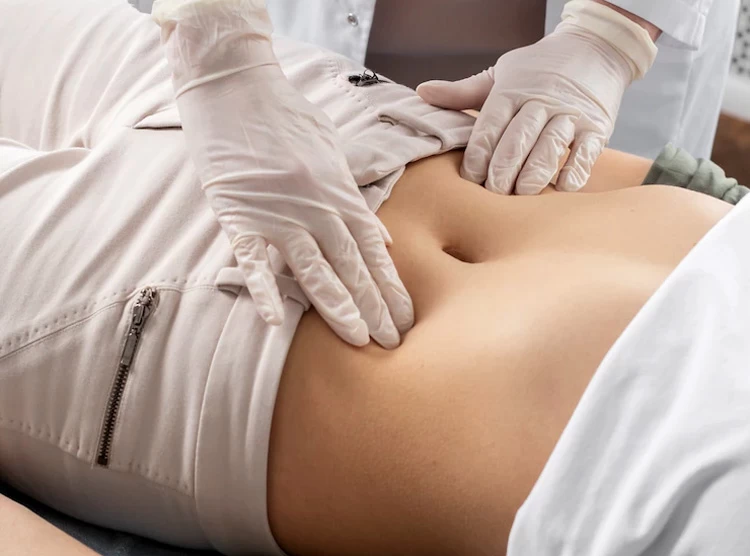
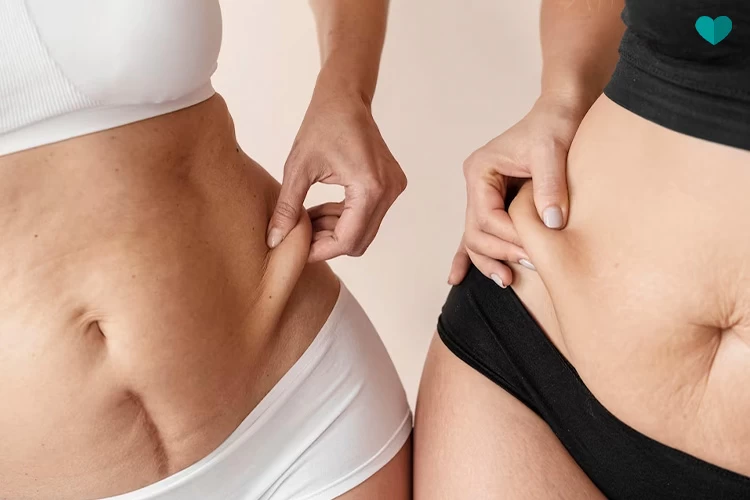
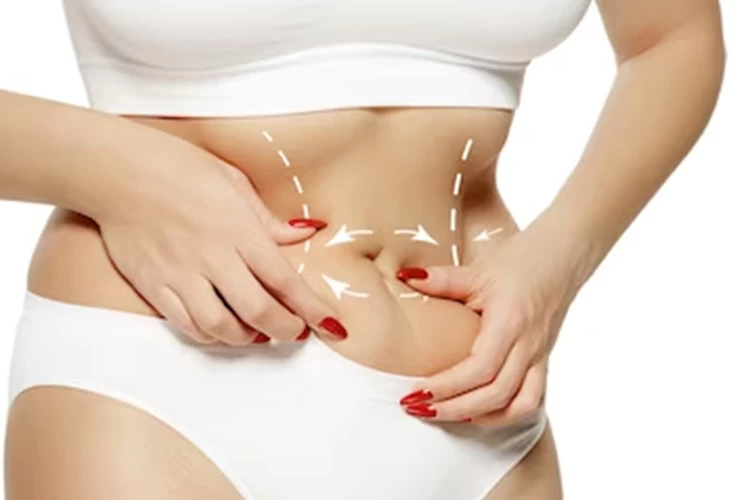

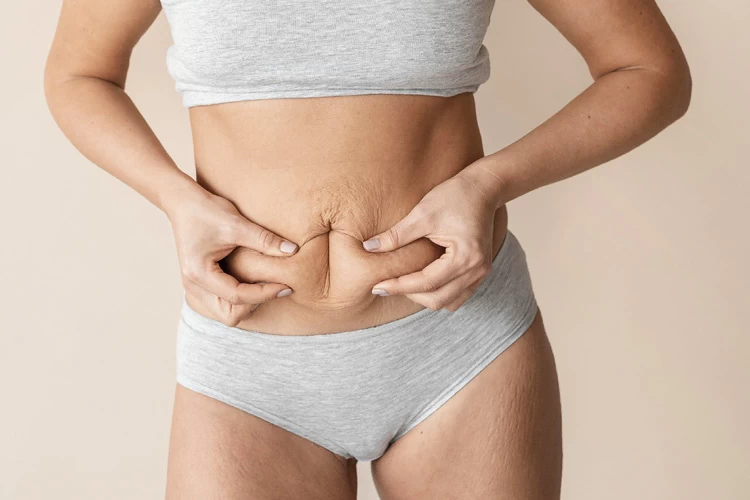
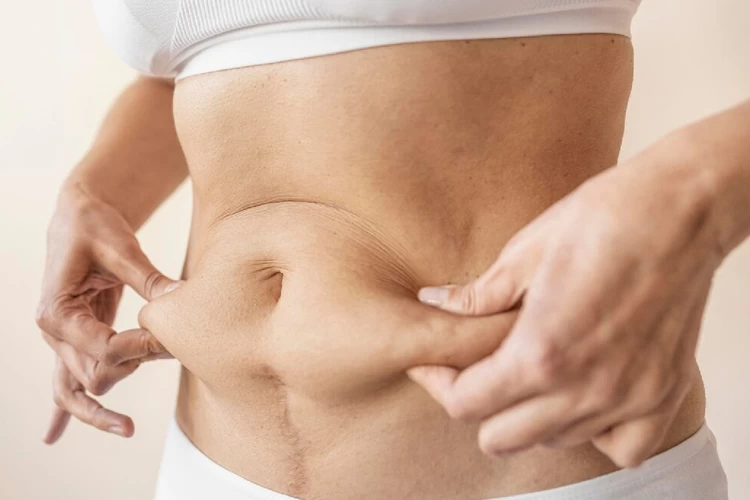

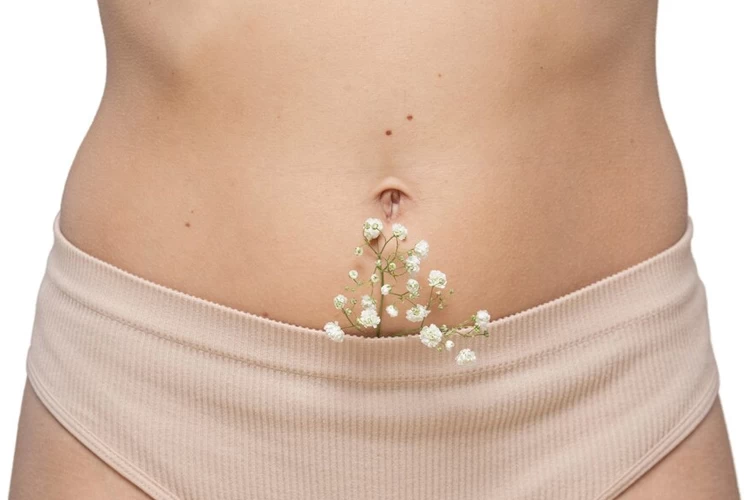


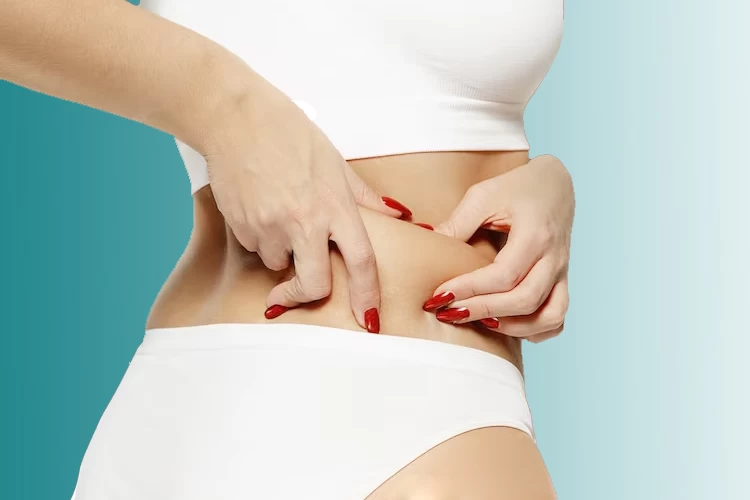
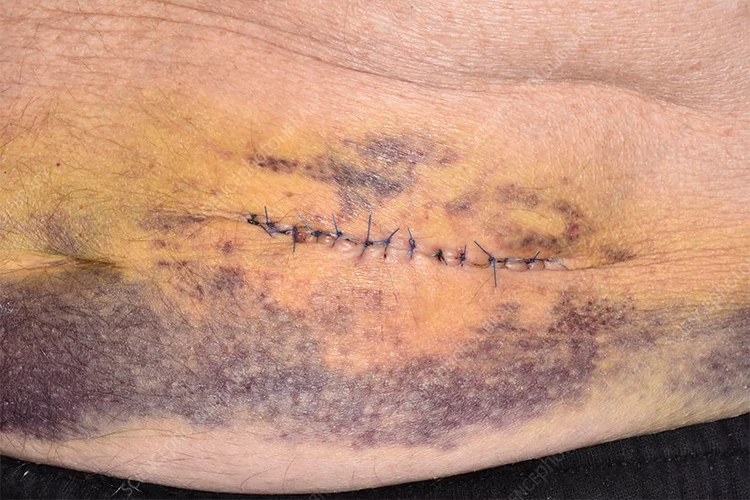


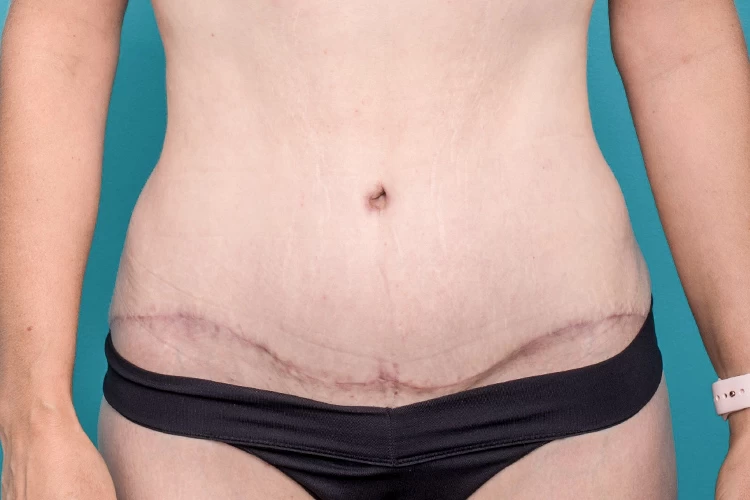
No reviews
Your comment